Global leaders urge Hamas to accept peace deal as the terror group delays deal amid doubts over whether Israel will agree to withdraw from Gaza
More than a dozen world leaders have urged Hamas to accept the long-negotiated ceasefire deal, after the terror group deadlocked over the three-phase deal it welcomed last week.
Talks involving mediators from Qatar and the US, which began yesterday, have made little progress as Hamas has made demands for guarantees that the deal would see a complete cessation of hostilities in the Gaza Strip and a complete Israeli withdrawal from the area.
The delay comes just a week after Hamas said it was ready to participate “in a constructive manner” in the three-phase deal unveiled by US President Joe Biden in late May.
Biden and 16 other world leaders, including key European and Latin American players, today jointly urged Hamas to accept a ceasefire deal and for Israel to accept compromises.
‘There’s no time to lose. We call on Hamas to conclude this agreement,” the White House statement said.
Hundreds of people gather with banners and Israeli flags in front of the Israeli Ministry of Defense to demonstrate and demand a ceasefire against Gaza
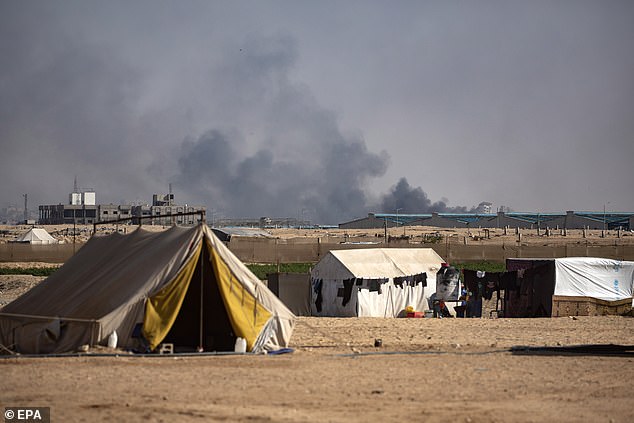
Smoke rises from an airstrike on Rafah
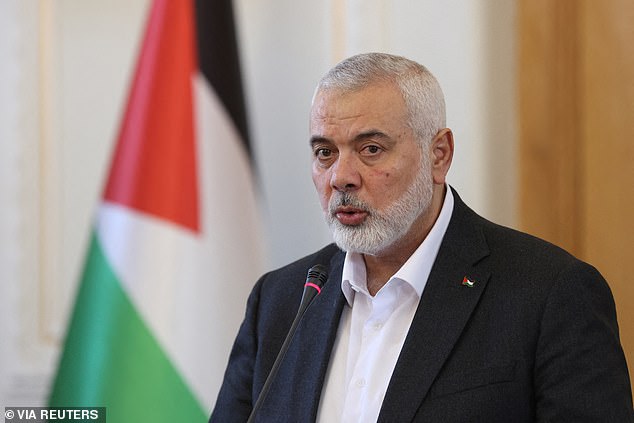
Top Hamas official Ismail Haniyeh (pictured) claimed the group would deal with the deal ‘seriously and positively’
The statement was signed by the leaders of the main European powers Britain, France and Germany, as well as Spain, which has angered Israel by recognizing a Palestinian state.
Even more unusually, the statement brought together the ideologically diverse leaders of South America’s most populous countries: Brazil and Colombia, whose left-wing presidents have strongly condemned Israel, and Argentina, whose new libertarian leader supports Israel.
The United States has repeatedly said it is up to Hamas to accept the deal, but the statement also called for flexibility from Israel.
“At this decisive moment, we call on the leaders of Israel and Hamas to make all the final compromises necessary to seal this deal and provide assistance to the families of our hostages, as well as to those on both sides of this terrible conflict. including the civilian population,” the report said.
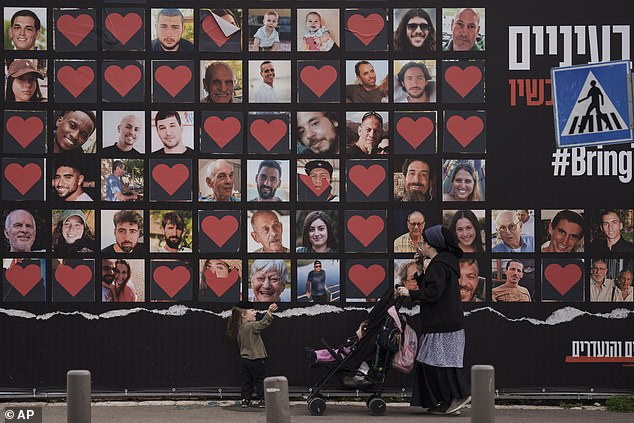
A woman and her children walk past a wall with photos of hostages kidnapped during Hamas’ cross-border attack on October 7
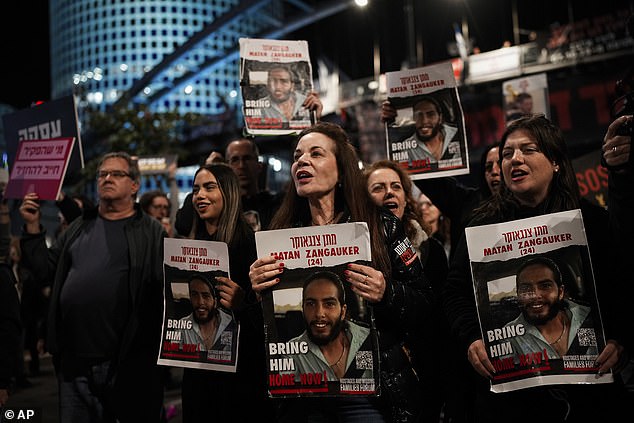
Relatives and supporters of the Israeli hostages held in the Gaza Strip by the militant group Hamas
“It’s time for the war to end and this deal is the necessary starting point.”
The talks in Doha, the capital of Qatar, attended yesterday by CIA Director William Burns, are the latest in a series of negotiations held in recent months aimed at securing a ceasefire in Gaza , as well as the release of Israeli hostages and Palestinian prisoners. .
Top Hamas official Ismail Haniyeh asserted on Wednesday that the group would “deal seriously and positively with any agreement based on a comprehensive cessation of aggression and complete withdrawal and prisoner exchange.”
But Israel said there would be no end to fighting during ceasefire negotiations as it carried out a new attack on a central part of the Gaza Strip.
Senior Hamas official Sami Abu Zuhri added on Thursday that while the group welcomed what he called “Biden’s ideas,” the US draft resolution at the UN Security Council was dependent on an Israeli ceasefire proposal that Hamas had seen and rejected .
“The document… makes no mention of ending the aggression or withdrawing,” he said.
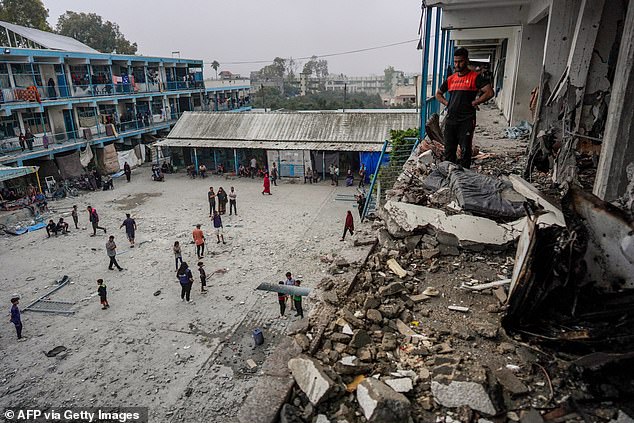
Palestinians check housing at a UN school where people affected by Israeli bombing have been displaced
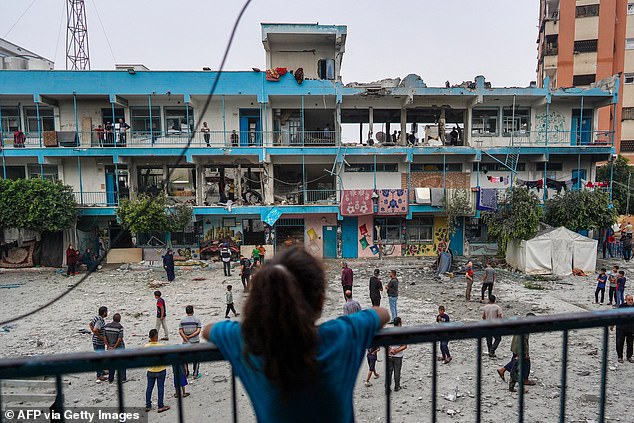
A Palestinian girl watches as others check a UN schoolhouse that has displaced people affected by the Israeli bombardment of Nuseirat
‘The Israeli documents speak of open-ended negotiations, without deadline, and speak of a phase in which the occupation gets its hostages back and resumes the war. We had told the mediators that such a document was not acceptable to us,” Abu Zuhri said.
He said Hamas backed his May 5 proposal, which was based on an end to the fighting and an Israeli withdrawal, a swap deal and lifting the blockade of the enclave.
The war began after Hamas attacked Israel on October 7, killing about 1,200 people and capturing more than 250 hostages, according to Israeli figures.
Israel’s military response in Gaza has killed more than 36,000 people, according to Gaza health officials. Thousands more are feared buried under the rubble.
